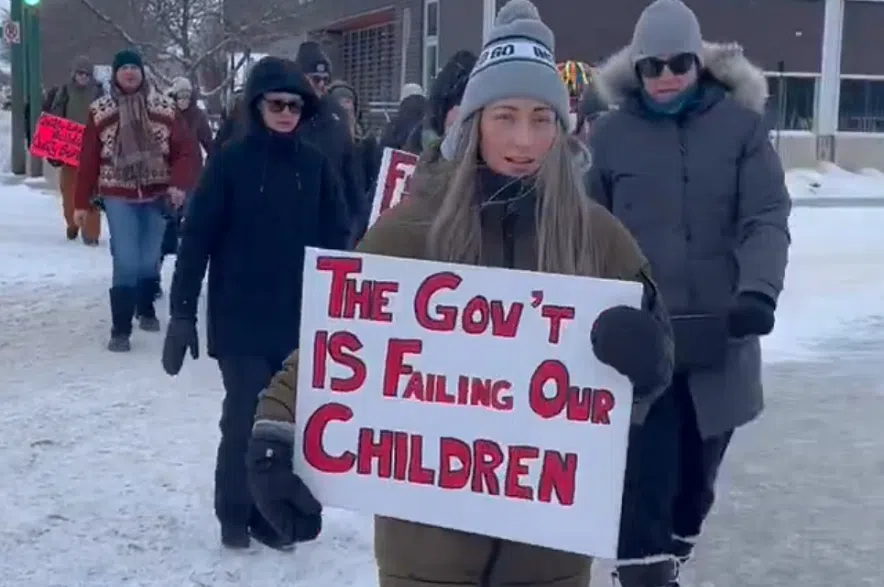Saskatchewan teachers will be ramping up their sanctions when they return to school Monday.
In a media release Friday, the Saskatchewan Teachers’ Federation (STF) announced that teachers across the province will withdraw all extracurricular activities for one day on Monday — the first day back for students after a week off.
Those activities include sports, drama, music, band, science clubs, intramurals, rehearsals, student leadership activities, planning for graduation celebrations, book fairs, and other clubs and activities.
All extracurricular activities that take place before school, during lunch hour, after school and in the evening are included.
“We really have no other way other than to apply sanctioned action to move this process forward,” said STF president Samantha Becotte.
Contract negotiations between the provincial government and the teachers’ union collapsed Feb. 13, prompting the STF to continue sanctions. So far in the dispute, those sanctions have included the withdrawal of lunch-hour supervision and rotating strikes.
Now, extracurricular activities are being withdrawn, at least for one day. It’s something Becotte said she does not take lightly.
“Teachers are passionate about the work we do to support students in classrooms and within the school community,” Becotte said in the release. “We never want to be in a situation where opportunities for students are impacted; however, this government has left us no other options.
As well, the STF will withdraw noon-hour supervision on a rotating basis.
On Monday, that action will affect all schools in the Saskatoon Public, Greater Saskatoon Catholic, Northern Lights, Northwest, Prairie South, Living Sky and Light of Christ Catholic school divisions, and at Sakewew High School in North Battleford.
While Becotte said the union’s goal is to get back to the negotiating table, the teachers have made clear that their bargaining committee will not be going back to the table until the government’s committee is authorized to discuss and bargain on class size and complexity.
“This government has the ability to pay, they have the ability to ensure that students are getting the supports that they need in the classrooms all across the province, and they just need the political will, and a lot of that political will often comes from public pressure,” she said.
Becotte said she believes the sanctions and strikes will help to raise public pressure. While a provincial election is expected in the fall, Becotte said it shouldn’t come down to an election to apply pressure to the government.
“These aren’t political decisions,” she said. “These are policy decisions.”
The union is continuing with single-day actions on Monday, but Becotte said that doesn’t mean it can’t or won’t escalate things further.
“Teachers do not want to be taking any action that impacts student learning or any other school activity, but we need to know that students will start to receive the supports that they deserve and need,” said Becotte.
The teachers’ contract with the government expired in August, and negotiations have been strained at times since then. After the collapse of talks earlier this month, both sides accused the other of walking away from the table and refusing to negotiate.
While the STF wants class size and classroom complexity included in the collective bargaining agreement, the government says those issues are best dealt with by local school divisions. Earlier this week, the Saskatchewan School Boards Association sided with the province on that matter.
The union also has raised concerns about violence in classrooms, with teachers recounting stories of abuse at the hands of students. The STF said that’s a symptom of underfunding of the education system by the provincial government.
–with files from 980 CJME’s Lisa Schick











